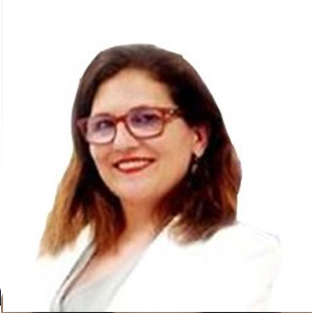
Successful completion of one of our projects in Guatemala
Successful completion of one of our projects in Guatemala Laura Núñez Muñoz More than 20 years of general experience and, for the last 15 years,


Technical Manager in the Property Taxation area of Euro-Funding, she is a technical architect specialized in taxation and public finance. Rocío has more than 15 years of experience in real estate valuations and cadastral management, coordination of cadastral registration and optimization of local taxes.
At present, a total of 39,392,008 urban real estate properties are registered in our country, not including foral territories, whose cadastral value amounts to a total of 2,369,059 million Euros with an average cadastral value per property of 60,141 Euros.
Since the beginning of this year, the reference value has been published, but for the moment only for certain residential and rustic properties without construction with representative crops. This reference value, which aims to fight against tax fraud and avoid the litigiousness that supported the indeterminacy of the previous “real value”, does not seem to have been well received among experts in the field, since no matter how much the Treasury insists that the existence or not of the reference value has no tax relevance by itself, the reality is that the existence of the reference value ceases to be applicable to the verification of values. Many tax experts outside the cadastral world believe that eliminating this possibility generates a great helplessness to the taxpayer. Although there are still many situations to be clarified, the reality is that the announcements for the approval of the parameters for calculating the reference values that will come into force on January 1 of next year have already been published.
In short, the reference value and the cadastral value are part of the cadastral description of the property, but they are different administrative values determined linked to different procedures and have different effects.
According to the new draft of the General State Budget Law (LPGE), the Ministry of Finance has set as one of the objectives for next year 2023 the revision of the cadastral value of a total of 825,000 properties throughout Spain.
According to the clarification of the General Directorate of Cadastre on its web page, the original purpose of the cadastre is of a tax nature and aims to facilitate the census of real estate, its ownership, as well as the cadastral value. The latter is an administrative value that corresponds to each property and that allows to determine the economic capacity of its owner.
The cadastral value also affects other taxes whose management corresponds to the State through the State Agency of Tributary Administration (AEAT), as in the IRPF, in which it is determined that the real estate imputed as income with general character, 2% on the cadastral value of the real estate.
According to the new draft of the General State Budget Law (LPGE), the Ministry of Finance has set as one of the objectives for next year 2023 the revision of the cadastral value of a total of 825,000 properties throughout Spain.
According to the clarification of the General Directorate of Cadastre on its web page, the original purpose of the cadastre is of a tax nature and aims to facilitate the census of real estate, its ownership, as well as the cadastral value. The latter is an administrative value that corresponds to each property and that allows to determine the economic capacity of its owner.
The cadastral value also affects other taxes whose management corresponds to the State through the State Agency of Tributary Administration (AEAT), as in the IRPF, in which it is determined that the real estate imputed as income with general character, 2% on the cadastral value of the real estate.

Successful completion of one of our projects in Guatemala Laura Núñez Muñoz More than 20 years of general experience and, for the last 15 years,

PERTE for industrial decarbonisation approved PERTE for industrial decarbonisation approved The PERTE is approved with the aim of accompanying industry in its decarbonisation process to

Keys to efficient driving Enrique Roca Industrial Technical Engineer with specialization in Mechanics. He is currently Technical Manager in the Energy Efficiency and Sustainability unit
